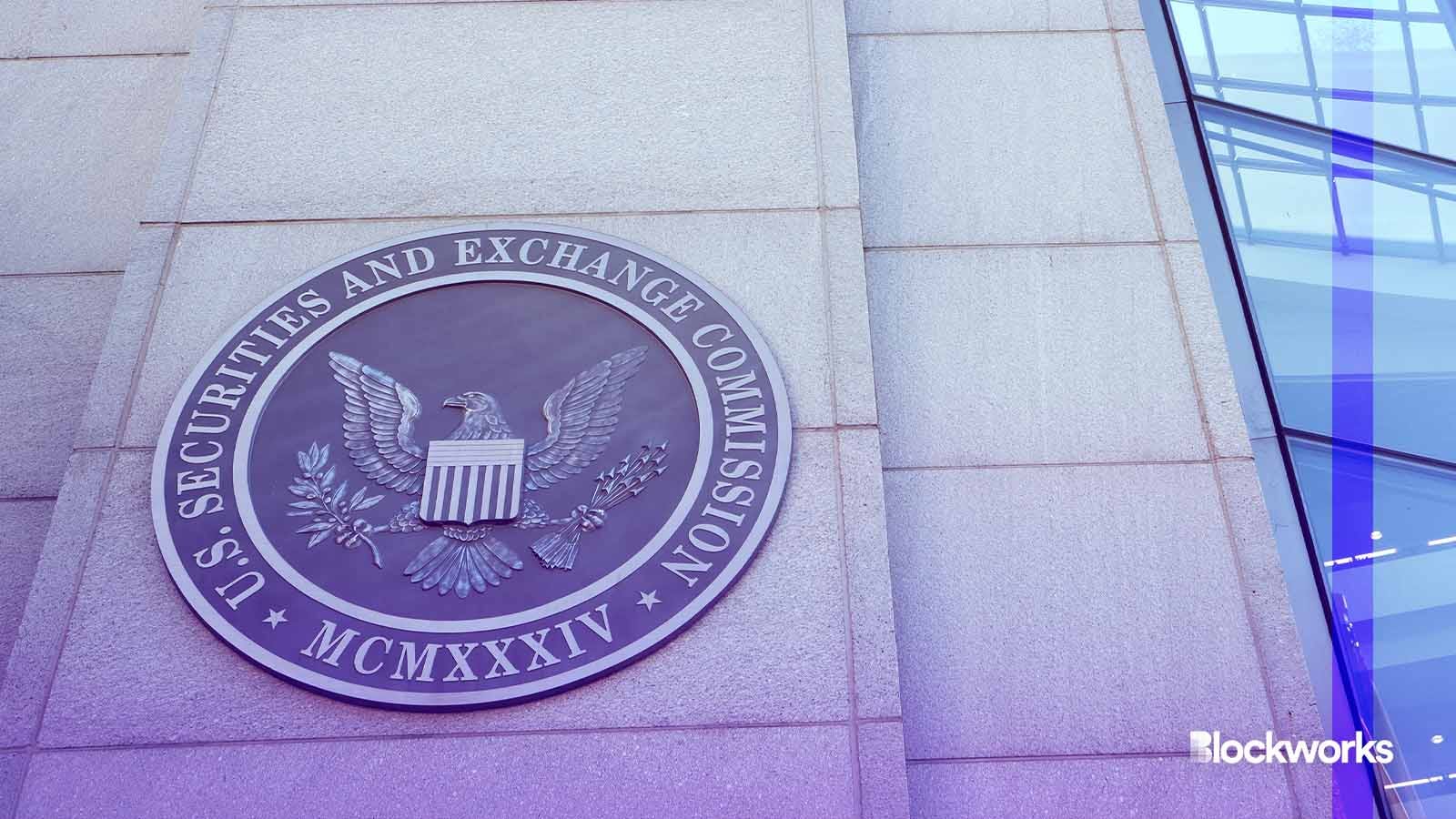Investors are ‘the clear winners’ as bitcoin ETF fee battle comes into focus
Planned spot bitcoin funds sporting fees competitive to physical gold offerings “a rather mind-boggling development,” ETF executive says

Tada Images/Shutterstock modified by Blockworks
Spot bitcoin ETFs haven’t launched yet. Heck, the Securities and Exchange Commission hasn’t even approved them.
Still, industry watchers said the planned fees for such funds — revealed in a slate of disclosures Monday — represent a win for investors if indeed these funds are greenlit.
Bitwise currently has the lowest intended fee at 0.24% (24 basis points) for its proposed spot bitcoin ETF. Potential funds by BlackRock, Franklin Templeton, VanEck, as well as one by Ark Invest and 21Shares, are at a nearly identical level.
Read more: Bitcoin ETF planned fees revealed: BlackRock goes low, Grayscale stays high
“ETFs allow every investor to access the market at prices paid by the largest institutions in the world,” Bitwise Chief Investment Officer Matt Hougan said in a Monday X post.
Nate Geraci, president of The ETF Store, said that investors are “the clear winners” when it comes to the latest proposed price points.
“There are six issuers with fees below 40 basis points — historically an important cutoff line in the ETF space in terms of driving investor interest,” Geraci told Blockworks. “I don’t think anyone was predicting that and it speaks to how brutally competitive this category will be.”
There are roughly a dozen issuers vying for spot bitcoin ETFs — a type of product the SEC has never allowed to come to market.
Grayscale Investments was an outlier, saying in a Monday filing it intends to charge a fee of 1.5% for its spot bitcoin ETF, which would list as a result of converting its existing Grayscale Bitcoin Trust (GBTC). The fee is lower than the 2% yearly fee that GBTC currently charges, but remains well above competitors.
Intended fees revealed in the registration statement filings could be changed, and none of the planned funds have been approved to launch.
Neena Mishra, director of ETF research at Zacks Investment Research, called Grayscale’s potential 1.5% price point a “big surprise,” adding that the firm may have trouble competing over the long term with such a fee.
The 0.25% fee by Ark Invest and 21Shares also caught Mishra’s eye, as she noted such a fee is much lower than other “rather pricey” Ark ETFs. The company’s Ark Innovation ETF (ARKK), for example, has a 0.75% fee.
“It’s still early to predict which product will gain investors’ favor, but I’d bet on BlackRock at this stage,” Mishra told Blockworks. “What’s not to like about a low-cost product from the world’s largest asset manager that seems perfect for an advisor or investor looking for safe and convenient bitcoin exposure?”
Spot bitcoin ETF fees, comparatively
Since first hitting the market three decades ago, ETFs have in many cases offered a lower-cost alternative to actively managed mutual funds.
The first ETF — State Street Global Advisors’ S&P 500 ETF Trust (SPY) — carries an expense ratio of 0.09%. Some of the other largest ETFs in the world — stock market- and bond market-focused offerings by Vanguard and BlackRock — charge a fee as low as 0.03%.
But perhaps a better comparison to bitcoin funds is physical commodity ETFs — funds that hold agricultural goods or precious metals, for example. Bitcoin has historically been compared to gold, albeit in digital form.
Read more: To gauge impact of bitcoin spot ETF, analysts look to gold
The first US gold ETF launched in 2004. The two biggest — SPDR Gold Shares (GLD) and the iShares Gold Trust (IAU) — have expense ratios of 0.40% and 0.25%, respectively.
Similar, but smaller, trusts by Aberdeen and GraniteShares are priced at 17 basis points.
State Street and BlackRock also offer cheaper versions of GLD and IAU via GLDM and IAUM, which charge 0.10% and 0.09%, respectively.
“Spot bitcoin ETFs will actually be fee-competitive with physical gold ETFs — a rather mind-boggling development,” Geraci said.
All spot bitcoin ETF proposals — aside from Grayscale Investments’ planned ETF — offer a more attractive price than the ProShares Bitcoin Strategy ETF (BITO). That fund, which in 2021 became the first US ETF to invest in bitcoin futures contracts, is priced at 0.95%.
As for the spot bitcoin ETFs already trading in Canada, the country’s first — the Purpose Bitcoin ETF (BTCC) — has a 1.00% management fee.
In addition to most of the planned US spot bitcoin ETFs undercutting these prices severely, some offer fee waivers for the earlier investors.
“While the initial fee waivers are a nice perk, they don’t tend to move the needle much as most investors focus on the longer-term costs,” Geraci said.
Get the news in your inbox. Explore Blockworks newsletters:
- The Breakdown: Decoding crypto and the markets. Daily.
- 0xResearch: Alpha in your inbox. Think like an analyst.






